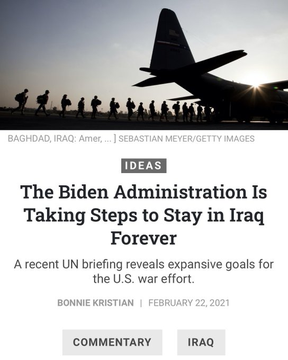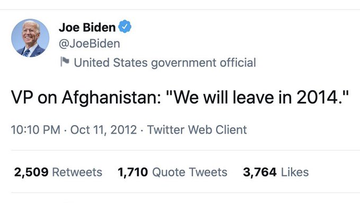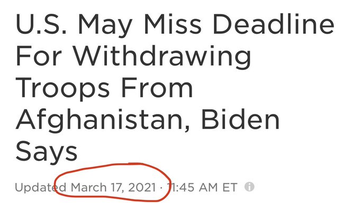Dr. Margaret Flowers had a difficult 2020. I think we all did. We were dealing with the pandemic, we saw a corporatist who despises Medicare For All become president despite his long record of being a War Hawk. We had to live with a government that did nothing for us -- and still doesn't. A government that pretends there's no need for a UBI. A government that fails to provide assistance, let along leadership. And on top of that and so much more, she also lost her partner.
I hope 2022 ends up better for all of us. This is from Flowers' latest at DISSIDENT VOICE:
As I traveled in Nicaragua on the recent Sanctions Kill delegation, one thing was clear: social transformation (revolution) requires both political power and participation by the people. Without political power, revolutionary programs will not have the material resources they require. Without the participation of the people, revolutionary programs, even with resources, cannot be put into practice and defended.
Right now, Nicaraguans have both and they are making great progress in building a new society or as it is often referred to in Latin America, ‘Buen Vivir,’ (the good life). They are demonstrating what we mean when we say “transforming society to put people and the planet over profits.” And this is one of the reasons why the United States is targeting Nicaragua through hybrid warfare including a misinformation campaign, direct interference in the politics of the country and economic attacks. It is clear the United States is already working to undermine the upcoming presidential election in Nicaragua scheduled for November 7, but that is a necessary topic for another day.
In this newsletter, I will focus on two aspects of the ongoing Sandinista revolution in Nicaragua: building power through organizing peasant workers and building a multicultural society that respects the sovereignty of Indigenous Peoples. Both contain lessons for activists in the United States.
In the last newsletter, I wrote a bit about the history of the popular struggle in Nicaragua, the largest country in Central America that has a low-density population of around six million people. Through a mass armed movement, Nicaraguans ousted the US Marines in the early twentieth century but that was followed by almost 50 years of the brutal dictatorship of the US-backed liberal party led by the Somoza family. Throughout that period, a minority of people (5%) owned most of the land (80%).
In 1979, the same year that the US-backed Shah of Iran was defeated, the Sandinista National Liberation Front (FSLN), which began in the 1960’s, overthrew the Somozas and was finally able to start putting its 13-point socialist program into practice. Although there were setbacks during the US-backed Contra War of the 1980s and the neoliberal period from 1990 to 2006, in the past 14 years, Nicaragua has made major achievements that other poor countries and many a rich country like the United States have not been able to make.
Their successes include access to free education from preschool through the university level for all people, universal healthcare, land ownership, a pension, the empowerment of women, youth, and marginalized populations and more. Nicaragua has a primarily popular economy composed of cooperatives and small farms and businesses. It has achieved food sovereignty with 90% of the food consumed being produced locally and a growing agricultural export market. It is building infrastructure, particularly roads, electricity, and potable water. Currently, over 98% of homes have electricity and 75% of that comes from renewable sources. Almost one-fourth of the energy produced is geothermal as Nicaragua is a land of volcanos. Learn more in this Clearing the FOG episode taped in Nicaragua.
It took many decades to create the conditions in which these achievements could be made. The struggle to put the Sandinista revolution into practice and to defend the gains continues. Both the FSLN and the Rural Workers Association (ATC) are integral parts of that struggle.
Here's C.I.'s "Iraq snapshot:"
Thursday, April 1, 2021. Iraq finally passes the 2021 budget, attacks on protesters continue, and much more.
Anne Cassebaum writes a letter to the editors of THE BURLINGTON TIMES-NEWS:
March 20 marked the 18th anniversary of our war on Iraq. It’s time for Americans to ask how our empire and its wars are working. We prefer to talk about protecting vital interests, nation-building, human rights, anything but empire. But empire is what our endless wars and our 800-plus military bases are about, and why though Iraqis have voted for them to leave, 2,500 troops remain.
Has sending most of our taxes to the Pentagon to maintain an empire worked for us? Our communities feel the drain. Only a few profit from war and weapons production.
Are we safer for attacking others? The State Department’s advisory against travel to Iraq due to “terrorism, kidnapping, armed conflict and Mission Iraq’s limited capacity to provide support to U.S. citizens” just scratches the surface.
Is our democracy stronger? Empire wars have brought illegal spying, government by executive orders, extraordinary rendition, denial of habeas corpus and secrecy. The Constitution put war decisions with Congress, not the president, to guard against the urge for foreign domination.
Will the Biden Administration pull back from empire? Secretary of State Anthony Blicken, an avid supporter of the Iraq War, announced that the world doesn’t organize itself without American leadership and that he wants to reclaim that leadership. Images of millions displaced, cities in rubble and Abu Ghraib come to mind as the continued hype of Russia and China as enemies and the bombing inside Syria signal the empire will continue.
And it will, unless we pressure Congress to repeal the blanket Authorizations for the Use of Military Force (AUMF) and to cut the Pentagon budget. Congress must insist on its responsibility to check the use of war. We can be a great country or be an empire. Our founders knew we could not be both.
Waiting On Biden Tweets:
The Iraq War. Arwa Damon filed a report for CNN this week and noted, "Each neighborhood, each street, each family has a story of pain and suffering. The violence was so widespread here that I, in my 18 years covering the war in Iraq, do not know a single person who has not somehow been impacted by it.
18 years and the war still drags on and it's accomplished nothing worthwhile.
The Iraqi people are no better off and suffer at the hands of kleptocrats who steal from the people over and over again.
Iraq finally approved this year's budget yesterday. MIDDLE EAST ONLINE notes, "Iraq's parliament on Wednesday approved a 2021 budget of 130 trillion Iraqi dinars ($89.65 billion) as the country wrestles with an economic and financial crisis due to low crude prices." Abeer Abu Omar and Khalid Al-Ansary (BLOOMBERG NEWS) note that this budget is based on the belief that oil will sell for at least $45 a barrel. While the Iraqi people suffer -- approximately 25% live in poverty -- don't worry about the officials, they'll keep getting their big checks. Dilan Sirwan (RUDAW) explains, "Article 20 of the budget bill, which concerns cuts to the salaries of the three presidencies, the ministries, and employees, was rejected, according to Iraqi state media. "
Ali Jawad (ANADOLU AGENCY) reports:
Iraqi protesters on Thursday closed three oil facilities in the southern province of Dhi Qar, protesting against the federal budget.
Late Wednesday, the Iraqi parliament voted to approve the annual general budget, with total expenditures amounting to 129 trillion dinars (about $88 billion).
The new budget did not include articles to guarantee protesters' job opportunities, a move that they responded with disruption of oil facilities.
The approval of the budget comes after the lapse of three months of the current fiscal year and it will be applied retroactively.
Eyewitnesses told Anadolu Agency that "protesters with certificates specialized in the field of oil sector closed the entrances to the Dhi Qar Oil Company, its oil refinery, and the Oil Products Distribution Company, in an escalating step."
The eyewitnesses said: "Protesters set fire to the tires of vehicles in front of the entrances of the three oil companies and demanded urgent intervention to including them in the budget by providing them with job opportunities."
We'll note this Tweet:
Protests have been going on, the current wave of protests, since the fall of 2019. Not even the pandemic has prevented the protests. The protests succeeded in forcing the resignation of one prime minister. The response from the government has been to attack the protesters, to stalk them outside of protests, to kidnap them, to kill them. Suadad al-Salhy (MIDDLE EAST EYE) reports:
Jaseb Hattab al-Hiliji never noticed the motorbike carrying two young men. It was just another bike, squeezing between pedestrians in the crowded, narrow streets of Amara’s al-Sinaaiyah district.
Hiliji didn’t notice either, when one of the men got off and walked slowly but purposefully towards him.
According to eyewitnesses, that is when the man took out a gun, pointed it at Hiliji’s head and fired a bullet that silenced the 57-year-old forever.
Less than an hour later, the local police announced that they had arrested the murderer, and that the crime was triggered by a tribal dispute.
"Hiliji is a cousin of the killer, and they had major disputes and mutual lawsuits. The killer made this clear in his confessions," a senior local police officer told Middle East Eye.
"The killer said that he was returning from work and he found Hiliji in front of him while passing through the al-Sinaaiyah area, so he took out his pistol and shot him dead."
Official statements and videotaped confessions by the killer were explicit: this was a non-political crime, a family dispute. But the exact nature of the dispute was never presented, nor why the killer carried a gun in the first place.
To many in the southern city of Amara and Iraq in general, there was a different story. Hiliji was the victim of an assassination epidemic.
And like killings before, the motives given by the authorities just did not wash.
A son's disappearance
Hiliji’s tragedy stretches back further, to 7 October 2019. That’s when his son, lawyer Ali Jaseb Hattab al-Hiliji, received a phone call from a woman who said he had been assigned as her representative in a divorce case.
CCTV footage of that evening shows Ali waiting by his car in central Amara, when a woman in a black gown approached him. The footage shows him speaking to the woman, whose face cannot be seen, for several minutes before a black Chevrolet Tahoe stopped 10 metres from the two. Three masked men got out of the Tahoe and forced Ali to get into their car.
As the black Tahoe left, a modern Toyota pickup appeared. The woman voluntarily climbed into it. The pickup left behind the Tahoe.
Soon after Ali’s disappearance, rumours began to fly that he was disappeared because of links to the October 2019 anti-government protest movement that was raging in Amara and across southern Iraq and Baghdad.
Yet according to several prominent activists in the city who spoke to MEE, Ali was not a demonstrator or an activist. He had, however, participated with a number of lawyers in defending some of the youths who were arrested because of their participation in the 2019 anti-government demonstrations in its first week.
Amnesty International Iraq Tweeted about Ali Jaseb Hattab al-Heliji back in December of 2019:
The violent attacks on protester continue. Sura Ali (RUDAW) reports:
Protesters have called for demonstrations in the city of Samawah, in
al-Muthanna governorate, after activist Haider al-Khashan was kidnapped
and threatened on Thursday.
A close friend of Khashan, who asked not to be named, told Rudaw English
that a car with four masked people intercepted Khashan's car while he
was driving with his mother at one o'clock on Thursday morning. He was
then taken to an unknown location and threatened to stop protesting
before being released late in the morning.
“The kidnappers took his mother's phone as she had filmed the incident,” the source said.
“The kidnappers investigated Khashan on accusations of insulting Qasem
Soleimani and Abu Mahdi al-Muhandis, which are absolutely false,” said
activist Haider Ali.
"The militia’s ways of kidnapping and threatening Samawah protesters will never stop us,” he added.
Activists launched the ”al-Muthanna rising up” Twitter hashtag after
Khashan’s abduction, calling for mass demonstrations on Friday in
response to his kidnap and demanding the dismissal of the local
government.
While the US media continues to largely ignore the Iraq War, Iran's PRESS TV did offer a segment on it this week.
New content at THIRD:
- Truest statement of the week
- Truest statement of the week II
- A note to our readers
- Editorial: Censoring PRESS TV
- TV: Who gets handed the genie?
- Bad moments in every day life
- KINDLE UNLIMITED (Stan, Ava and C.I.)
- Great Songs of The Last Five Years
- Books
- Tweet of the week
- This edition's playlist
- Socialists attacked by DSA Progressives, Eric Lond...
- Did CNN Air Fake Right Wing News? With Marcia Brown
- Margaret Kimberley | Whitewashing the History of A...
- #TheJimmyDoreShow AOC Calls Biden Critics "Bad Fai...
- #RichardMedhurst Video Game Whitewashes Iraq War
- Women's History Month 2021: Reproductive Justice f...
- Footage Of Kids In Cages Leaked
- Highlights
The following sites updated:





No comments:
Post a Comment